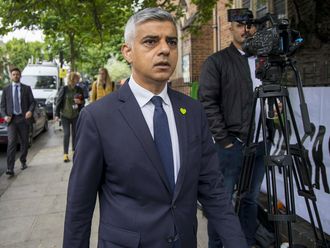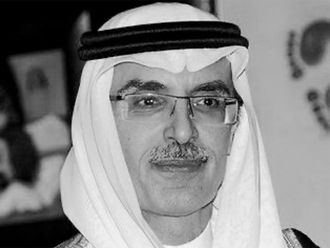Kabul: Their forbidden young love forever dislodged their lives, sending them into exile in the high mountains of central Afghanistan, briefly to Tajikistan and even to jails in order to find protection from vengeful family members who sought to kill them in the name of honour.
Now, more than two years after a young Afghan couple from different sects, Zakia and Mohammad Ali, eloped against the wishes of their families, they arrived in New York City late on Tuesday on a 90-day visa granted by the US Embassy in Kabul. The couple plan to apply for asylum with the help of an international aid group.
Life had long before lost any sense of normality for the couple and their 17-month-old daughter, Ruqia.
Zakia’s family members were forced out of their village when she eloped, and they constantly pursued the couple. Hailing from the Tajik ethnicity and Sunni sect of Islam, they see her love and subsequent marriage to Mohammad Ali, an ethnic Hazara and a Shiite, a dishonour worthy of her killing.
But the couple’s challenges, chronicled in a series of New York Times articles as well as in the book The Lovers, by Times correspondent Rod Nordland, seem far from over. Even if they win asylum in the United States, both are illiterate, with little experience living or working beyond the potato fields of their home in Bamian province.
“We submit to God — we tried everything here, but the situation did not change. There, at least we will be able to live in security and safety,” a nervous Mohammad Ali said before his flight from Kabul.
Their earlier attempts at seeking asylum through Western embassies in Kabul, including that of the United States, had failed. They were told they needed to flee Afghanistan first as refugees. When they tried that, arriving in Tajikistan in the fall of 2014, it ended up a disaster: They were robbed of about $5,000 (Dh18,363) in savings, jewellery and cell phones, they said, and were deported back to Afghanistan.
This time around, the process for a US visa has been going more smoothly. Their case, granted under Humanitarian Parole, a limited visa programme for those with a “compelling emergency,” was facilitated by a lawyer, Poonam Gupta of White & Case LLP, who was hired by aid group Women for Afghan Women.
When Mohammad Ali was detained by police in Kabul after his in-laws accused him of kidnapping Zakia, Women for Afghan Women sheltered Zakia in their safe houses and their lawyers helped win Mohammad Ali’s release.
“Since their case had become politicised and has received so much media attention, we knew that their lives would be endangered as long as they remained in Afghanistan,” said Manizha Naderi, executive director of Women for Afghan Women. “They couldn’t live anywhere in peace. Zakia’s family would hunt them down.”
Naderi said the group’s New York staff would try to help them adjust to life there.












